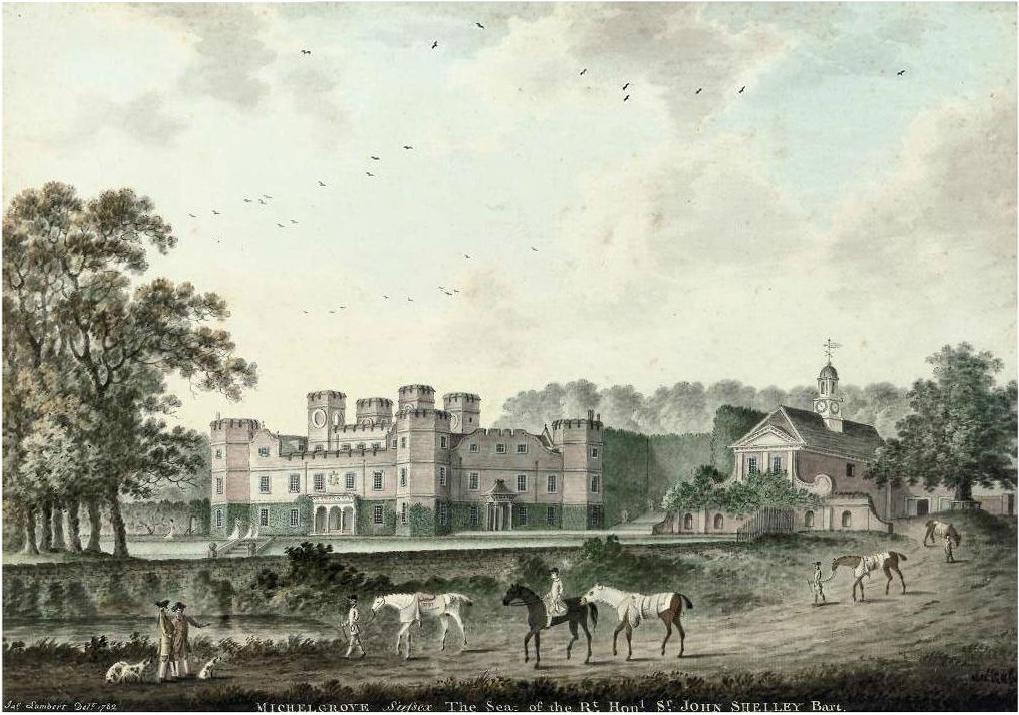|
Sir John Shelley, 4th Baronet
Sir John Shelley 4th Baronet (5 March 1692 – 6 September 1771) of Mitchelgrove, Sussex, was a British Whig politician who sat in the House of Commons between 1727 and 1747. Shelley was the eldest son of Sir John Shelley, 3rd Baronet and his second wife Mary Gage, daughter of Sir John Gage, 4th Baronet, of Firle, Sussex. He succeeded his father to the baronetcy on 25 April 1703. He was a Roman Catholic, who conformed to Anglicanism in 1716. He married Catherine Scawen, daughter of Sir Thomas Scawen of Horton, Buckinghamshire on 21 May 1717. She died in September 1726 and he married as his second wife Margaret Pelham, daughter of Thomas Pelham, 1st Baron Pelham MP of Laughton, on 16 March 1727. Her brother was Thomas Pelham-Holles, 1st Duke of Newcastle. Shelley was elected Member of Parliament for Arundel at the 1727 general election. He supported the Government consistently throughout his parliamentary career. He was returned unopposed for Arundel at the 1734 general elec ... [...More Info...] [...Related Items...] OR: [Wikipedia] [Google] [Baidu] |
British House Of Commons
The House of Commons is the lower house of the Parliament of the United Kingdom. Like the upper house, the House of Lords, it meets in the Palace of Westminster in London, England. The House of Commons is an elected body consisting of 650 members known as members of Parliament (MPs). MPs are elected to represent constituencies by the first-past-the-post system and hold their seats until Parliament is dissolved. The House of Commons of England started to evolve in the 13th and 14th centuries. In 1707 it became the House of Commons of Great Britain after the political union with Scotland, and from 1800 it also became the House of Commons for Ireland after the political union of Great Britain and Ireland. In 1922, the body became the House of Commons of the United Kingdom of Great Britain and Northern Ireland after the independence of the Irish Free State. Under the Parliament Acts 1911 and 1949, the Lords' power to reject legislation was reduced to a delaying power. The gov ... [...More Info...] [...Related Items...] OR: [Wikipedia] [Google] [Baidu] |

